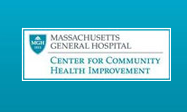(Revere, MA) December 18, 2014—Give the gift of health to yourself and your family this holiday season. If you're a smoker, quitting is the single most important step you can take to protect your health and the health of your loved ones. Smoking causes immediate damage to your body and increases your risk for many kinds of cancers, as well as heart attack, lung disease, and early death.
While the holidays can be a tough time to quit smoking, they’re an excellent time to plan and to get your friends and family prepared to support you in the New Year. If you want to quit and you’ve already tried in the past, don’t give up. It takes most smokers several tries before they are able to quit for good. Quitting can be hard, but with planning and support you can free yourself from this addiction.
Fortunately, all health insurance plans in the Commonwealth cover quit-smoking medicines for as many times as you need them in order to quit. MGH Community Health Associates’ Living TOBACCO-FREE program offers free quit-smoking coaching at the MGH Revere HealthCare Center. Call 781-485-6210 for information. MGH Community Health Associates is a program of the MGH Center for Community Health Improvement. In addition, the Massachusetts Smokers’ Helpline, 1-800-QUIT NOW (1-800-784-8669), is available to you for free coaching to help you make a plan and to support you through quitting. People who used the telephone counseling provided by Massachusetts Smokers’ Helpline together with medication were three times more likely to quit than smokers who used neither.
Five Ways to Get Ready to Quit Smoking
Quitting smoking can be hard, but there are ways to make it easier.
1. Set a quit date. Choose January 1st or another quit day within the next 2 weeks.
2. Tell your family and friends you plan to quit. Share your quit date with the important people in your life and ask for support. A daily e-mail, text message, or phone call can help you stay on course and provide moral support. Plan a smoke-free lunch date or game night to distract yourself. Or gather your family in the kitchen to cook a special meal together.
3. Anticipate and plan for challenges. The urge to smoke is short—usually only 3 to 5 minutes. Surprised? Those moments can feel intense. Before your quit date, write down healthy ways to cope. Even one puff can feed a craving and make it stronger. Healthy choices include:
o Drinking water
o Taking a walk or climbing the stairs
o Listening to a favorite song or playing a game
o Calling or texting a friend
4. Remove cigarettes and other tobacco from your home, car, and workplace. Throw away your cigarettes, matches, lighters, and ashtrays. Clean and freshen your car, home, and workplace. Old cigarette odors can cause cravings.
5. Talk to your doctor about medicines to help you quit. Nicotine patches, nicotine gum, or prescription medicines can help you quit for good. Your quit coach and pharmacist can also give you guidance.
For more information about local in-person support contact the MGH Community Health Associates’ Living TOBACCO-FREE program at 781-485-6210. For resources on quitting visit www.makesmokinghistory.org.
###
About the Metro Boston Tobacco Free Community Partnership, a Program of Health Resources in Action
The Metro Boston Tobacco-Free Community Partnership supports communities’ efforts to lower smoking prevalence and exposure to secondhand smoke; enhance state and local tobacco control efforts by exposing tobacco industry tactics, mobilizing the community to support and adopt evidence-based policies, and changing social norms. Funded by the Massachusetts Tobacco Cessation and Prevention program Community Partnerships serve as a resource for local coalitions, health and human service agencies, municipalities, and workplaces on tobacco intervention efforts.
###
About the Center for Community Health Improvement (CCHI)
CCHI carries out its work in Chelsea, Revere, and Charlestown, where MGH has maintained healthcare centers for more than 40 years, as well as in Boston among youth, homeless persons and seniors. CCHI has partnered with the communities it serves to assess needs and create more than 40 programs that:
• Reduce and prevent substance use disorders
• Intervene in the cycle of violence
• Tackle the obesity epidemic by increasing access to healthy food and physical activity
• Increase access to care for vulnerable populations such as immigrants and refugees, seniors, and homeless people
• Prevent cancers through early detection and screening
• Generate interest in science and health careers among youth



